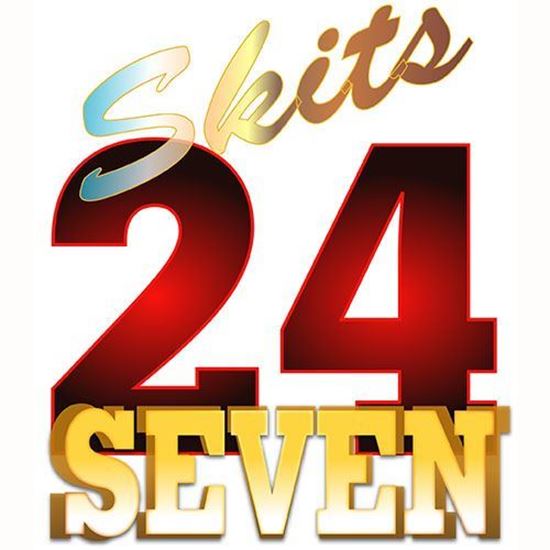
Skits 24 / 7
Here's a collection of 24 skits, 7 of them Shakespeare related, just perfect for the thespians in your class. It doesn't get any funnier than "The Copyright Violation," where Alicia's new cartoon tattoo, done on a somewhat private location of her body, violates Mega Studio's copyright. All the studio requires is that she displays the tattoo whenever they specify! In "Math Is a Killer," a student justifies his incomplete math homework - and fears! - as he relates the fatal outcomes of some of the most famous mathematicians of Ancient Greece. And students will clamor to perform these unique versions of scenes from "Romeo and Juliet" and "Hamlet" where actors speak only in one-word sentences. Using from 1 to 5 characters each, these skits are entertaining and appealing.
Behind The Scenes
PLAYWRIGHT DWAYNE YANCEY TALKS ABOUT
"SKITS 24/7"
Q: WHAT'S THE TITLE MEAN?
A: It means you must produce them around the clock for an entire week. No, seriously, the title is simply a clever way to promote the content - there are 24 short scenes, with 7 of them being riffs on Shakespeare.
Q: WHAT INSPIRED YOU TO WRITE THESE SCENES?
A: An overactive imagination. That and fast typing fingers. I live just outside Roanoke, Va. The local theatre Mill Mountain Theatre has a weekly open-stage show called No Shame Theatre, where anyone can get up and stage their work, provided it's original, short and doesn't break anything (people, mostly, but also laws). Most of the pieces in this collection were written with that show in mind. That's why all but one of these pieces "Shakespeare Sells Out" is the exception are designed to last five minutes or less.
Q: WHAT'S YOUR FAVORITE PART OR LINE IN THE COLLECTION? WHY?
A: Oh, gosh. That's almost impossible to say. That would be like asking someone which of their children is their favorite. But some, I'll acknowledge, have more potential than others. For instance, the Repo Man in "The Copyright Violation" is a glorious part an absolute villain. He has only one line, but what a line it is. You'll have to read it to find out the rest.
Q: WHERE DO THE CHARACTERS COME FROM? ARE THEY BASED ON PEOPLE YOU KNOW?
A: Almost all of these come from situations I've encountered although they've often been transformed beyond belief. For instance, I went to the local fair and saw a traveling animal act with some tigers. That inspired "The Day the Circus Tigers Decided They'd Had Enough." When spring was coming on, and many high school students I knew were seeking summer jobs, I was inspired to write "Job Interview Techniques for the Beginner." I'll let you figure out where "A Suburban Housewife Applies the Age-Old Lesson That the Best Way to a Man's Heart Is Through His Stomach," comes from.
Q: WHAT DID YOU TRY TO ACHIEVE WITH THIS COLLECTION?
A: Amusement, pure and simple. I suppose a few skits might have deeper meanings behind them, such as the role of women in history in "The Wright Sisters and Other Important Figures from Herstory." And ultimately, my goal with all the Shakespeare-themed pieces is to introduce people to Shakespeare to show he's accessible to all, and not the property of ivory-towered academics. But most are simply designed to produce a few laughs.
Q: ANYTHING ELSE YOU'D LIKE TO SAY ABOUT IT?
A: One of the things I've tried to do in all my script-writing is to try to create strong, and plentiful, roles for females. One of the first pieces of advice when I started writing plays came from a high school director who said, "Hey, this is pretty good, but I need more parts for females." There are only a handful of pieces here which require a male-majority cast. That's very intentional on my part.
While I have staged most of these pieces using adults, in the back of my mind, I've always understood that these scenes are really intended for life on a school stage. I hope high school (and middle school) theatre teachers agree. And if you choose to stage any of these pieces, I'd love to hear how they go over with your actors and audience.
